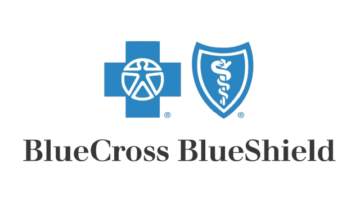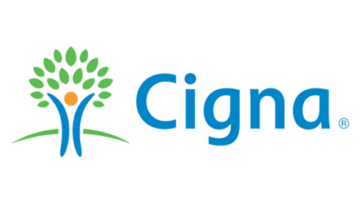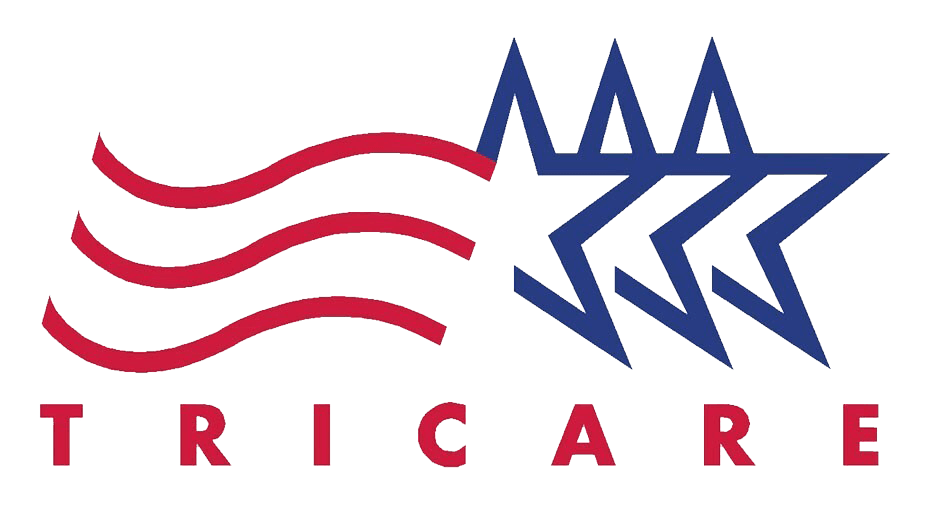When facing the profound challenge of depression, finding the right support system is crucial for effective healing and long-term well-being. The journey to recovery often begins with selecting a depression rehab center that meets your specific needs. The right rehab center can provide a structured environment, professional care, and personalized treatment plans that are essential for overcoming depression. This decision can significantly impact not only the recovery process but also the overall quality of life and mental health stability in the future.
Understanding Depression Rehab Centers
What is a Depression Rehab Center?
A depression rehab center is a specialized facility designed to provide comprehensive treatment for individuals suffering from depression. These centers offer a range of services, including medical care, therapy, counseling, and support, tailored to address the unique needs of each patient. Depression, being a complex mental health condition, requires a multifaceted treatment approach that addresses both the psychological and physical aspects of the disorder.
Depression rehab centers are equipped with trained professionals who specialize in mental health care. These facilities provide a safe and supportive environment where individuals can focus on their recovery without the distractions and stresses of everyday life. By offering a structured setting, these centers help patients establish routines, learn coping strategies, and develop skills necessary for long-term recovery.
The Importance of Professional Help
Professional help is essential in treating depression. Depression rehab centers have trained professionals who use evidence-based treatments to help individuals manage their symptoms and work towards recovery. Without professional intervention, depression can worsen and significantly impair daily functioning. The expertise provided by these professionals includes accurate diagnosis, personalized treatment plans, and continuous monitoring of progress.
Depression can have severe consequences if left untreated, including increased risk of substance abuse, physical health problems, and even suicide. Professional treatment in a depression rehab center can prevent these outcomes by addressing the root causes of depression and providing tools for effective management. Additionally, rehab centers offer a supportive community of peers and professionals who understand the challenges of depression, fostering a sense of belonging and hope.
Key Features of an Effective Depression Rehab Center
Qualified Medical Staff
An effective depression rehab center should have a team of qualified medical staff, including psychiatrists, psychologists, therapists, and counselors. These professionals are essential in diagnosing and treating depression, ensuring that patients receive the best possible care. The presence of experienced and compassionate staff can significantly enhance the treatment experience, providing patients with the confidence and trust needed for successful recovery.
Qualified medical staff can offer a range of treatments, from medication management to various forms of therapy. Their expertise ensures that treatment plans are evidence-based and tailored to the specific needs of each patient. Regular assessments and adjustments to treatment plans ensure that patients are progressing and receiving the most effective interventions.
Comprehensive Treatment Plans
The center should offer comprehensive treatment plans that address all aspects of depression. This includes medication management, various forms of therapy (such as cognitive-behavioral therapy, interpersonal therapy, and group therapy), and holistic approaches like mindfulness and exercise programs. A well-rounded treatment plan ensures that all dimensions of depression are addressed, promoting overall well-being and long-term recovery.
Comprehensive treatment plans also involve psychoeducation, teaching patients about their condition and how to manage it. Skills training, such as stress management and problem-solving techniques, can empower patients to take control of their recovery. Holistic therapies, including yoga, meditation, and art therapy, provide additional tools for managing symptoms and enhancing quality of life.
Accreditation and Licensing
Ensure that the depression rehab center is accredited and licensed by relevant authorities. Accreditation indicates that the center meets specific standards of care and has undergone rigorous evaluations. Licensing ensures that the facility operates legally and adheres to professional standards. These credentials are crucial for guaranteeing the quality and safety of the treatment provided.
Accreditation and licensing also reflect the center’s commitment to continuous improvement and excellence in patient care. Accredited centers are regularly reviewed and must demonstrate adherence to best practices and high standards. Choosing an accredited and licensed rehab center provides assurance that you or your loved one will receive quality care.
Types of Depression Rehab Programs
Inpatient vs. Outpatient Programs
Inpatient programs require patients to stay at the facility for a specified period, receiving intensive treatment and support. These programs are suitable for individuals with severe depression who need constant monitoring and a structured environment. Inpatient care provides a safe space where patients can focus entirely on their recovery without external distractions.
Outpatient programs allow patients to live at home while attending scheduled treatment sessions. These programs are ideal for individuals with mild to moderate depression who can manage their symptoms in a less restrictive setting. Outpatient care offers flexibility, enabling patients to continue their daily activities while receiving treatment.
The choice between inpatient and outpatient programs depends on the severity of the depression and the individual’s specific needs. Inpatient programs offer a higher level of care and support, while outpatient programs provide flexibility and autonomy. Some centers offer a combination of both, allowing for a seamless transition from intensive care to less intensive support.
Short-term vs. Long-term Care
Short-term care programs typically last for a few weeks to a few months and are designed to provide immediate relief and stabilization. These programs focus on crisis intervention, symptom management, and developing coping strategies. Short-term care can be beneficial for individuals experiencing an acute episode of depression or those needing a structured environment to jumpstart their recovery.
Long-term care programs can last several months to a year or more, focusing on sustained recovery and preventing relapse. These programs offer ongoing support and comprehensive treatment, addressing the underlying issues contributing to depression. Long-term care is suitable for individuals with chronic or severe depression who need extended support to achieve lasting recovery.
Choosing between short-term and long-term care depends on the individual’s condition, treatment goals, and available resources. Long-term programs provide a deeper level of intervention and support, while short-term programs offer immediate relief and stabilization. Both options can be effective, depending on the patient’s needs and circumstances.
Factors to Consider When Choosing a Depression Rehab Center
Location and Accessibility
The location of the rehab center can play a significant role in the recovery process. Some individuals prefer a center close to home for convenience and family support, while others may benefit from a more distant location to focus entirely on their recovery. A serene and peaceful setting can also enhance the healing process by providing a calming environment free from external stressors.
Accessibility is another important consideration. Ensure that the center is easily accessible for family visits and outpatient appointments. Proximity to medical facilities and emergency services is also crucial for addressing any medical needs that may arise during treatment.
Treatment Approaches and Therapies Offered
Different rehab centers may offer various treatment approaches and therapies. It’s essential to choose a center that aligns with the individual’s treatment preferences and needs. This includes traditional therapies, holistic approaches, and alternative treatments. For example, some patients may benefit from a combination of medication and cognitive-behavioral therapy, while others may prefer holistic methods like acupuncture and mindfulness meditation.
Evaluate the range of therapies offered and their effectiveness in treating depression. Look for centers that provide evidence-based treatments and have a track record of successful outcomes. A multidisciplinary approach that combines different therapies can enhance treatment effectiveness and promote comprehensive recovery.
Cost and Insurance Coverage
Cost is a crucial factor when choosing a depression rehab center. It’s important to understand the fees involved and what is covered by insurance. Many centers offer financial assistance or sliding scale fees based on the individual’s financial situation. Investigate the payment options available and ensure that the cost of treatment is manageable.
Verify your insurance coverage and what expenses are included. Some insurance plans may cover a significant portion of the treatment cost, while others may require out-of-pocket payments. Contact the rehab center’s financial office to discuss payment plans, insurance coverage, and any available financial assistance programs.
Reputation and Success Rates
Research the reputation and success rates of the rehab center. Look for reviews, testimonials, and success stories from former patients. A center with a high success rate and positive reviews is more likely to provide effective treatment. Online reviews, accreditation reports, and word-of-mouth recommendations can provide valuable insights into the center’s quality of care.
Success rates can be indicative of the center’s effectiveness in treating depression. While no treatment guarantees complete recovery, high success rates suggest that the center has a proven track record of helping patients achieve significant improvements. Consider centers that openly share their success rates and provide data on patient outcomes.
Personalized Care and Support
Individualized Treatment Plans
An excellent depression rehab center will create individualized treatment plans tailored to the specific needs of each patient. Personalized care ensures that the treatment addresses the root causes of depression and caters to the unique challenges faced by the individual. Treatment plans should be flexible and adaptable, allowing for adjustments as the patient progresses.
Individualized treatment plans involve a comprehensive assessment of the patient’s condition, including medical history, psychological profile, and personal preferences. Based on this assessment, the treatment team can develop a customized plan that includes specific therapies, medication, and support services. Regular reviews and updates to the treatment plan ensure that it remains effective and relevant.
Family Involvement and Support
Family involvement can be a critical component of recovery. A rehab center that encourages family participation and offers family therapy sessions can help build a strong support system for the patient. Family members can play a vital role in providing emotional support, understanding the patient’s condition, and contributing to the recovery process.
Family therapy can address any relational issues that may contribute to or result from depression. It provides a platform for open communication, education, and mutual support. Involving family members in the treatment process can enhance understanding, reduce stigma, and foster a collaborative approach to recovery.

Aftercare and Ongoing Support
Transition Planning
A good rehab center will provide a transition plan for patients as they move from intensive treatment to regular life. This includes connecting patients with outpatient services, support groups, and resources in their community. Transition planning ensures that patients have a clear path to follow after completing their inpatient or intensive outpatient program.
Transition plans may involve step-down programs, where patients gradually reduce their level of care while maintaining support. These plans can include regular follow-up appointments, therapy sessions, and participation in support groups. The goal is to provide a smooth transition and minimize the risk of relapse.
Continuous Monitoring and Follow-up
Continuous monitoring and follow-up are essential to ensure long-term recovery. Choose a rehab center that offers ongoing support and regular check-ins to help patients stay on track with their recovery goals. Regular follow-up appointments allow for the early detection of any signs of relapse and timely intervention.
Ongoing support can include access to a therapist, counselor, or case manager who can provide guidance and support as needed. Many rehab centers offer alumni programs, where former patients can stay connected with the center and participate in support activities. Continuous monitoring helps maintain progress and reinforces the skills learned during treatment.
Making the Final Decision
Touring the Facility
Before making a final decision, tour the facility to get a feel for the environment and the staff. This can help you determine if the center is a good fit and if you feel comfortable and supported in the setting. A tour allows you to see the living conditions, meet the treatment team, and ask any questions you may have.
During the tour, observe the facility’s cleanliness, the demeanor of the staff, and the interactions between staff and patients. A welcoming and supportive environment is crucial for successful treatment. The facility should be well-maintained, organized, and provide a safe space for recovery.
Asking Questions
Prepare a list of questions to ask the staff during your visit. Inquire about their treatment approaches, success rates, staff qualifications, and any other concerns you may have. Understanding the center’s philosophy, treatment methods, and support systems can help you make an informed decision.
Ask about the daily schedule, the types of therapies offered, and the involvement of family members in the treatment process. Clarify any doubts regarding cost, insurance coverage, and aftercare support. The answers to these questions can provide valuable insights and help you choose the right depression rehab center.
Trusting Your Instincts
Ultimately, trust your instincts when choosing a depression rehab center. If something feels off or you have doubts, it may be worth exploring other options. The right center should feel supportive, welcoming, and equipped to meet your needs. Your comfort and confidence in the treatment facility are essential for a successful recovery journey.
FAQs
How do I know if I need a depression rehab center?
If you or a loved one is experiencing severe depression that impacts daily functioning, professional help may be necessary. A depression rehab center can provide the intensive treatment and support needed for recovery. Signs that may indicate the need for a rehab center include persistent feelings of sadness, loss of interest in activities, changes in sleep and appetite, and thoughts of self-harm.
What types of therapies are typically offered at a depression rehab center?
Therapies commonly offered include cognitive-behavioral therapy, interpersonal therapy, group therapy, and holistic approaches such as yoga, meditation, and art therapy. These therapies are designed to address the psychological, emotional, and physical aspects of depression, promoting comprehensive recovery.
How long do treatment programs at depression rehab centers usually last?
The duration of treatment programs varies. Short-term programs can last a few weeks to a few months, while long-term programs can extend for several months to a year or more. The length of treatment depends on the individual’s condition, treatment goals, and progress. It’s important to choose a program that provides adequate time for recovery.
Can I visit my loved one at the rehab center?
Many rehab centers encourage family involvement and allow visits. It’s essential to check with the specific center regarding their visitation policies. Family visits can provide emotional support and strengthen the recovery process. Some centers may have specific visiting hours or guidelines to ensure a therapeutic environment.
What should I bring to a depression rehab center?
Each center has its guidelines, but generally, you should bring comfortable clothing, personal hygiene items, prescribed medications, and any important documents. It’s best to check with the center for a detailed list. Avoid bringing valuables or items that could be disruptive to the treatment environment.
Will insurance cover the cost of treatment at a depression rehab center?
Insurance coverage varies depending on the provider and the specific plan. It’s crucial to verify with your insurance company and the rehab center to understand what is covered and any out-of-pocket costs. Some centers offer financial assistance or payment plans to help manage the cost of treatment.
Finding Care for You or Your Loved Ones
Choosing the right depression rehab center is a critical step in the journey towards recovery. By considering factors such as the qualifications of the medical staff, the comprehensiveness of treatment plans, and the center’s reputation, you can make an informed decision that will provide the best possible support for you or your loved one. Remember, the goal is to find a center that offers personalized, compassionate care and a holistic approach to treating depression, ensuring a successful path to recovery. For more information call us at (512) 601-5407 or visit our website https://omegarecovery.org/.







